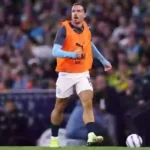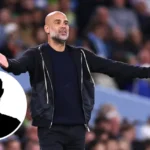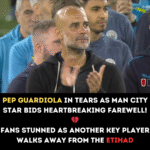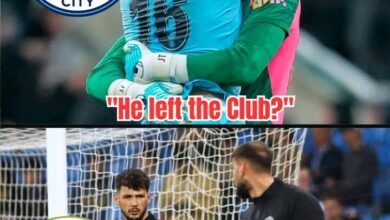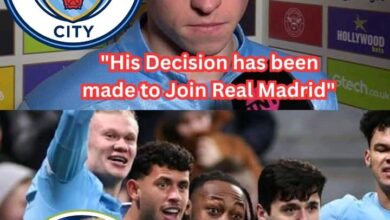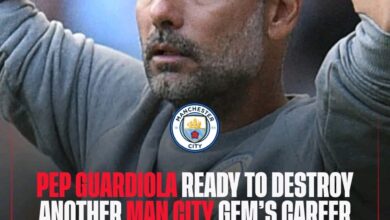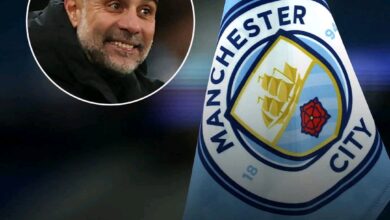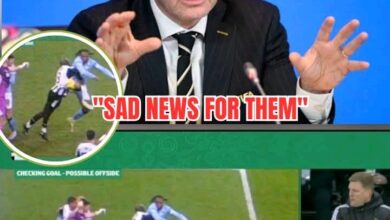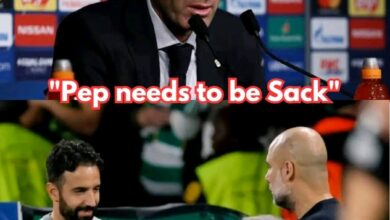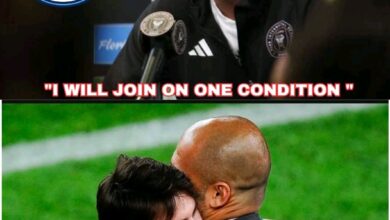How Jack Grealish actually feels about leaving Manchester City in the summer transfer window
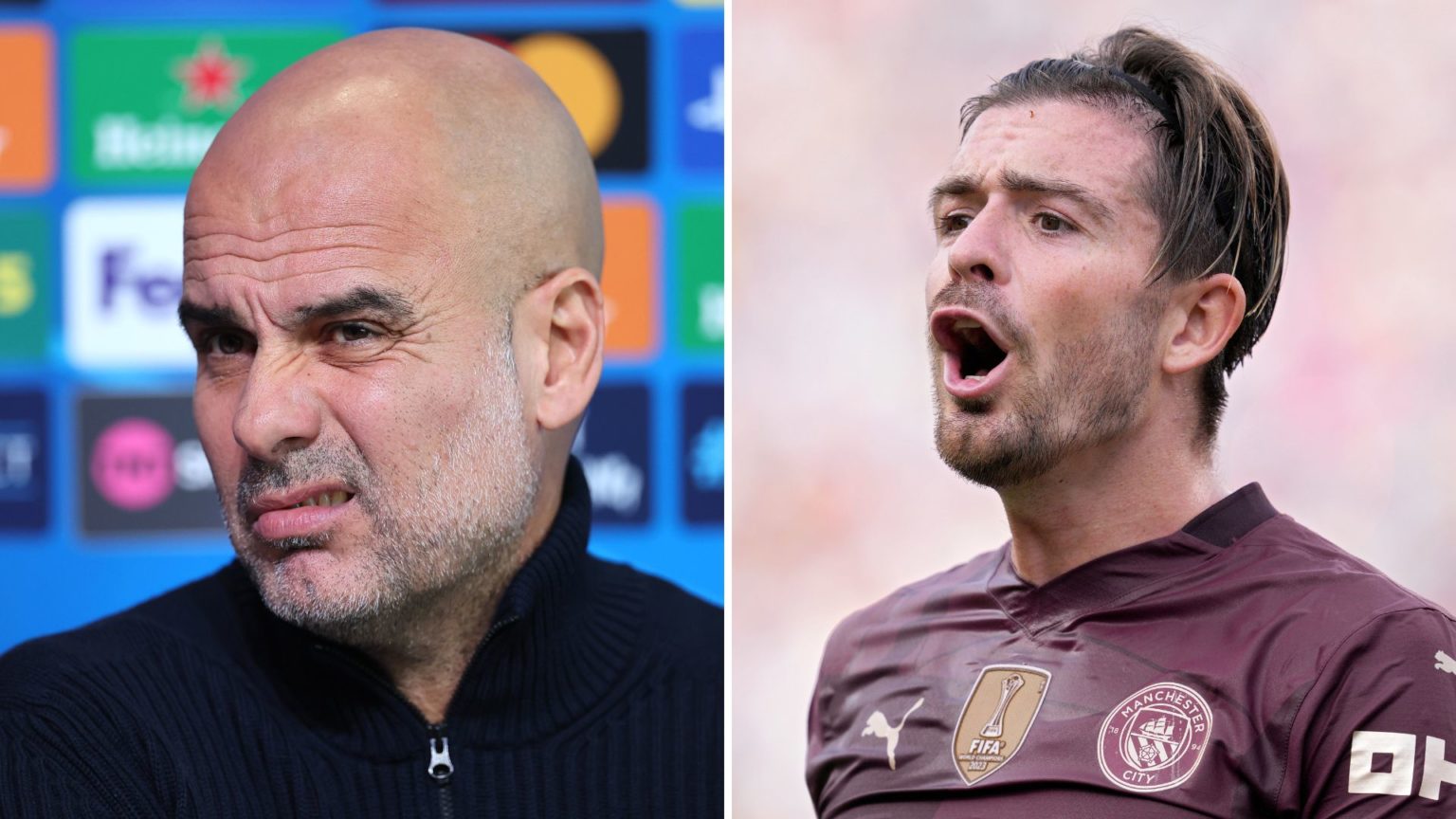
As the summer transfer window approaches, Manchester City finds itself at a crucial crossroads, with significant decisions to be made regarding both departures and new arrivals. The spotlight has fallen particularly on Jack Grealish, whose future at the Etihad Stadium hangs in the balance, while the club simultaneously pursues exciting young talent to reinforce their squad for the upcoming season.
The Jack Grealish Conundrum: A Star in Limbo
Jack Grealish’s journey at Manchester City has been a tale of contrasts—from the euphoria of a treble-winning season in 2023 to the current uncertainty surrounding his role in Pep Guardiola’s plans. The English winger, who arrived from Aston Villa in a record-breaking £100 million transfer, now finds himself at a career crossroads that could define his future in football.
The statistics paint a stark picture of Grealish’s diminished role this season. Having started merely five games in total for Manchester City throughout the year, the 29-year-old has experienced a dramatic fall from grace. This represents a significant decline for a player who was once considered integral to City’s attacking blueprint and played a crucial role in their historic treble achievement.
The situation has not gone unnoticed by football legends. John Terry, the former Chelsea and England captain, has publicly urged Grealish to consider his future at the club, citing the lack of playing time as a major concern for the player’s career development. Terry’s comments reflect a broader sentiment within football circles that talented players cannot afford to waste their prime years on the bench, regardless of the prestige of their current club.
Perhaps most telling of Grealish’s current predicament is his exclusion from Thomas Tuchel’s first England squad. This international snub represents a significant blow to a player who has previously been a regular feature in the England setup. The omission highlights how his reduced club form and limited playing time have impacted his standing at both domestic and international levels.
Despite these challenges, exclusive reports suggest that Grealish maintains a surprisingly positive outlook on his situation. According to Manchester City News’ chief correspondent Graeme Bailey, the player is described as being “very happy” with life in the North West and is not actively pushing for an exit from the club. This contentment with his current circumstances adds another layer of complexity to his situation, as it suggests that any potential departure would need to be mutually beneficial rather than driven by player discontent.
Manchester City’s stance on Grealish’s future appears pragmatic and business-focused. The club has reportedly indicated that they would not stand in the player’s way should he decide to seek a move elsewhere. More significantly, Grealish has been identified as one of the players the club would be open to selling ahead of the new campaign, suggesting that City are prepared to cash in on the winger if the right offer materializes.
This approach reflects the harsh realities of modern football, where even significant investments can be written off if players fail to meet expectations or fit into the manager’s evolving tactical plans. For Pep Guardiola, the decision appears to be driven by performance-based criteria rather than sentiment, with the Spanish tactician demanding higher standards from all his players.
The challenge for any potential suitors lies not just in convincing Grealish to leave his comfortable situation at City, but also in meeting his substantial wage demands. The winger currently earns an eye-watering £300,000 per week, making him one of the highest-paid players in the Premier League. This astronomical figure presents a significant obstacle for most clubs interested in securing his services.
The Financial Reality: Wage Structure Challenges
The financial implications of any potential Grealish transfer cannot be understated. His current weekly wage of £300,000 far exceeds the highest earners at many top clubs, creating a significant barrier to any potential move. To put this in perspective, Tottenham Hotspur’s highest-paid player, Son Heung-min, earns £190,000 per week, while Aston Villa’s top earner, Emiliano Martinez, receives £150,000 weekly.
These figures highlight the challenge facing clubs like Tottenham and Aston Villa, both of whom have been linked with potential moves for their former target. For these clubs to secure Grealish’s signature, they would need to completely restructure their wage hierarchies, potentially creating internal tensions and setting precedents that could prove financially unsustainable in the long term.
The wage disparity also reflects the different financial realities between Manchester City and other Premier League clubs. City’s ability to offer such substantial packages is partly due to their significant financial backing and revenue streams, advantages that many other clubs simply cannot match. This creates a situation where players can become trapped in golden cages—comfortable financially but potentially stagnating professionally.
Any potential resolution to Grealish’s situation may require compromise from all parties involved. The player might need to accept a significant pay cut to secure regular playing time elsewhere, while interested clubs would need to stretch their financial resources to accommodate his wage demands. Manchester City, for their part, might need to subsidize part of his salary or accept a lower transfer fee to facilitate a move.
Manchester City’s Summer Recruitment Drive
While the Grealish situation represents one aspect of City’s summer transfer strategy, the club has been equally active in pursuing new talent to strengthen their squad. The Citizens’ approach to the transfer market reflects their determination to maintain competitiveness despite a challenging season that saw them finish outside the top positions in the Premier League.
Securing Champions League qualification through a top-four finish has proven crucial in maintaining City’s attractiveness to potential signings. The prestige and financial rewards associated with Europe’s premier competition continue to be significant factors in player recruitment, and City’s presence in next season’s tournament strengthens their negotiating position considerably.
The club’s transfer activities have focused on identifying young, talented players who can contribute immediately while also representing long-term investments. This strategy aligns with Pep Guardiola’s preference for working with adaptable, technically gifted players who can be molded to fit his tactical systems.
Rayan Cherki: The Rising Star
One of the most exciting developments in City’s summer recruitment has been their pursuit of Rayan Cherki, the 21-year-old French attacking midfielder from Olympique Lyonnais. The young talent has emerged as a priority target for Guardiola, who has personally involved himself in convincing the player to join the Manchester club.
According to French football journalist Santi Aouna, Cherki has agreed to personal terms with Manchester City, with Guardiola’s direct involvement proving decisive in the negotiations. The Spanish manager’s reputation for developing young talent and his track record of success have reportedly played significant roles in swaying the player’s decision.
Cherki’s statistics from the previous season provide compelling evidence of his potential impact at City. In 44 appearances across all competitions for Lyon, the young Frenchman recorded an impressive 12 goals and 20 assists, demonstrating his ability to contribute both as a goalscorer and creator. His European experience, having netted four goals and provided eight assists in the Europa League, suggests he can perform on the continental stage where City will be competing.
The financial aspects of the Cherki deal appear more manageable than the Grealish situation, with reports suggesting a transfer fee of approximately €40 million (£36 million). This represents significant value in today’s inflated transfer market, particularly for a player of Cherki’s age and potential.
Perhaps most telling about Cherki’s abilities are the testimonials from those who have worked closely with him. Ainsley Maitland-Niles, his teammate at Lyon and former Arsenal player, has provided glowing praise for the young Frenchman’s capabilities. Describing Cherki as “the best natural talent I’ve ever seen” and “an absolute master, a wizard with the ball,” Maitland-Niles’ assessment suggests City may be acquiring a truly special talent.
The former Premier League player’s detailed analysis of Cherki’s abilities paints a picture of a complete attacking player. His description of the Frenchman as being “two-footed, has no fear, keeps going and going, can get past people with such ease, such finesse” suggests a player perfectly suited to Guardiola’s demanding style of play.
Particularly encouraging for City supporters is Maitland-Niles’ observation about Cherki’s defensive work rate and team ethic. His comment that the player “is now working for the team off the ball and has gone to another level this season” indicates that Cherki possesses the tactical discipline and work ethic that Guardiola demands from all his players, regardless of their primary position.
Strategic Implications and Squad Building
The potential acquisition of Cherki, combined with the possible departure of Grealish, represents more than just player transactions—it symbolizes a strategic shift in Manchester City’s approach to squad building. The move from an established, expensive player to a younger, more affordable talent with significant upside potential reflects modern football’s emphasis on sustainability and long-term planning.
This strategy allows City to address multiple objectives simultaneously. Financially, replacing Grealish’s substantial wages with Cherki’s presumably more modest salary demands would provide significant savings that could be reinvested elsewhere in the squad. From a sporting perspective, acquiring a hungry, developing talent like Cherki could provide the dynamism and unpredictability that may have been missing from City’s recent performances.
The transition also aligns with Guardiola’s track record of successfully integrating young players into his systems. Throughout his career, the Spanish manager has demonstrated an ability to accelerate the development of promising talents, from Barcelona’s famous academy graduates to more recent successes at City. Cherki’s arrival would provide another opportunity for Guardiola to showcase his developmental skills while potentially uncovering a future superstar.
Broader Transfer Market Context
Manchester City’s summer activities must be viewed within the broader context of the contemporary transfer market, where financial fair play regulations, inflated prices, and competitive pressures create complex challenges for even the wealthiest clubs. The club’s approach of identifying value in emerging markets while potentially offloading high-earning underperformers represents a pragmatic response to these constraints.
The Grealish situation serves as a cautionary tale about the risks associated with high-profile, expensive signings. Despite his undeniable talent and previous successes, the winger’s inability to consistently secure a starting position highlights the challenges players face when joining clubs with exceptional squad depth and tactical demands.
Conversely, the pursuit of players like Cherki represents the potential rewards of identifying talent before it reaches peak market value. If successful, such signings can provide both immediate impact and long-term financial appreciation, creating a sustainable model for squad development.
Looking Ahead: Implications for the New Season
As Manchester City prepares for the upcoming season, the resolution of the Grealish situation and the potential addition of Cherki will significantly impact their prospects. The club’s ability to maintain competitiveness while potentially reducing wage costs and adding dynamic new talent could prove crucial in their quest to return to the summit of English and European football.
For Grealish, the summer represents a pivotal moment in his career. Whether he chooses to fight for his place at City, accept a move to secure regular playing time, or remain content with his current situation will define his immediate future and potentially his long-term legacy in the game.
The broader implications extend beyond individual players to the club’s overall trajectory. Manchester City’s handling of these transfer situations will be closely watched by competitors, players, and agents as indicators of the club’s ambitions and methods. Success in refreshing the squad while maintaining performance levels could establish a template for sustainable excellence in modern football.
Conclusion
Manchester City’s summer transfer window activities represent a fascinating study in modern football’s complexities. The juxtaposition of Jack Grealish’s uncertain future with the excitement surrounding potential new signings like Rayan Cherki illustrates the constant evolution required for sustained success at the highest level.
The club’s pragmatic approach to squad management, balancing financial considerations with sporting ambitions, reflects the realities facing even the most well-resourced teams. As the summer progresses, the resolution of these various storylines will provide crucial insights into Manchester City’s strategic direction and their prospects for the seasons ahead.
Whether Grealish finds a new lease of life at the Etihad or seeks fresh challenges elsewhere, and whether Cherki can fulfill his enormous potential in City’s sky blue, the outcomes will significantly influence the club’s immediate future and serve as important case studies in modern football’s ongoing evolution.


